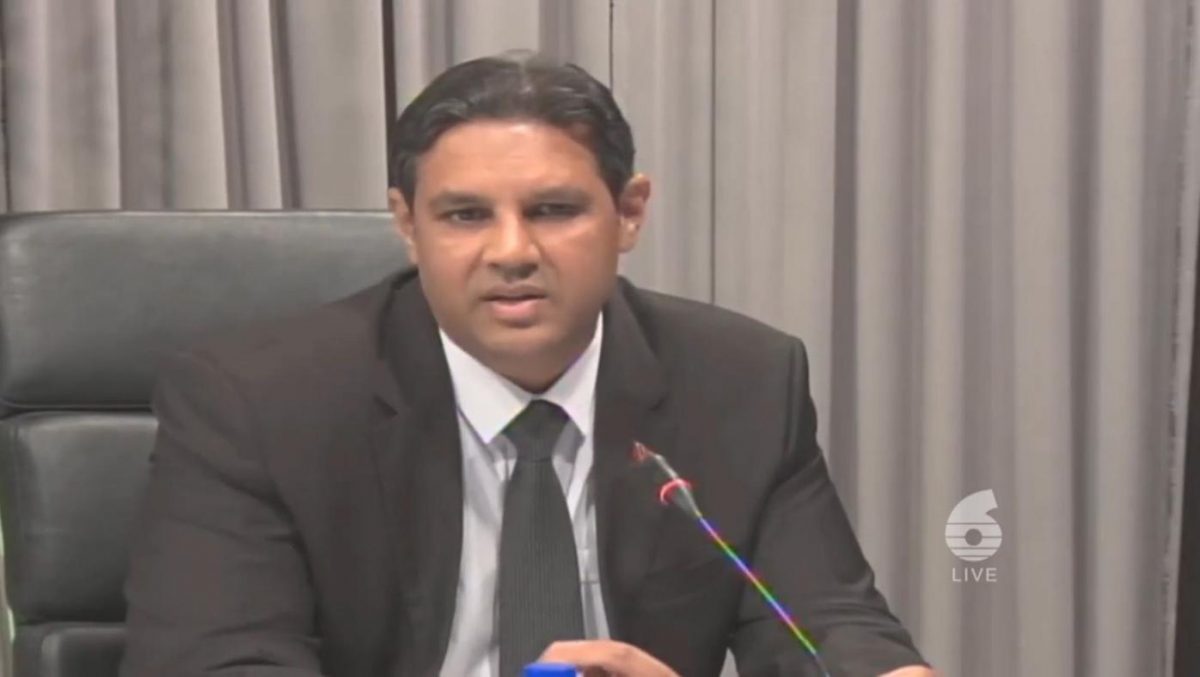(Trinidad Express) As numbers continue to rise, there is a rolling backlog of COVID-19 testing that is yet to be completed.
Speaking at a virtual media conference on Wednesday, Chief Medical Office, Roshan Parasram stated that there is a surplus of incoming tests to available laboratories in the country. As a result, he said that the Ministry of Health would be attempting to purchase three additional testing machines and kits in the next week
“There is a surplus in the way the tests are coming in so we are actually doing more in tests than are able to be done in a particular day so there is almost a rolling backlog at this point. We are working to get three additional machines fully functional by getting more kits in hopefully sometime next week which will help greatly in terms of our capacity throughout the country. Then we will be able to pick up on that backlog,” he said.
He added that CMOH’s would be doing all possible to ensure a quick return of test results. For those who are asymptomatic without having received a negative test result, he said that when the 14-day quarantine period is up, those persons can return to work.
In an initiative to ramp up testing, Minister of Health Terrance Deyalsingh indicated that the country has officially signed on to a PAHO offer to receive antigen testing kits. Deyalsingh said that a document was signed on Friday accepting 160,000 tests which were to be ordered and sent to a production line through PAHO. A plan of deployment, he said, was developed by medical officials.
“We then sat with the CMO and other officials and worked out our needs analysis and came up with 160,000 tests, we have already decided where the tests would be deployed, we have decided the protocols. The tests have now gone in with PAHO’s requests from other countries into a production line. Manufacturers don’t just produce tests to leave on a shelf you have to have a firm order before it goes into a production line. I would have signed off on the letter on Friday 28 of August. We are now in that production line, it has to be produced, it has to be tested, shipped to our agent and then air freight down to Trinidad and Tobago. There are some variables outside of my direct control and we are hoping to have it here in the shortest possible space of time,” said Deyalsingh.
According to Parasram, antigen rapid testing differs clinically from PCR testing in that it does test for active disease and can be used only on symptomatic patients. However, these tests are expected to produce results within 15 minutes with 80 to 90 per cent accuracy.
“Antigen rapid tests, we have spoken before about rapid tests being serological tests which tests for an antibody. So, the difference is that an antibody test is not testing for active disease, it tests for up to ten days to a month after you develop symptoms after you are infected and presenting symptoms. So, an antigen test is best used zero days of symptoms to ten days of symptoms. This particular test from the manufacturing site has said it will give us anywhere between 80 and 90 per cent certainty that we are dealing with COVID-19 if we are using it on persons that present with signs and symptoms. It is not to be used on persons that have no symptoms because after that you have a drop in sensitivity and specificity. It may give you a large degree of false negatives and false positives. The group of people we are using it on are predominantly anyone that presents with symptoms resembling COVID-19,” he said.
The test which will be completed through nasal swabbing, will be stationed at centres throughout the country, in primary care and emergency departments.
“Those will be placed at any center where you see viral illnesses predominantly in the primary care setting and emergency departments to tell us quickly if someone has covid-19 or not. I think it will greatly enhance our ability to test quickly and make a diagnosis and then put persons away from our suspect areas into our COVID-19 hospital and get them treated as early as we can. To differentiate between those categories that sit on the grey area, something we can SARI, Severe Acute Respiratory Illness… it will sift out that group of patients very quickly so we can get those patients where they need to be and treated appropriately,” he said.

